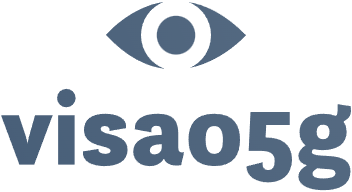Anúncios
Navigating the realm of credit cards, loans, and financing can be a daunting endeavor, particularly given the myriad of options available.
It is essential to comprehend the definitions and differences among these financial instruments to make informed decisions. Factors such as interest rates, fees, repayment terms, and eligibility requirements necessitate careful consideration when selecting the appropriate financing option.
This article aims to elucidate the advantages and disadvantages of each option, offering strategies to help assess individual needs and objectives. Whether one is seeking to make a significant purchase or manage existing debt, this guide is designed to provide comprehensive support.
Anúncios
Understanding Credit Cards, Loans, and Financing
A comprehensive understanding of credit cards, loans, and financing is essential for effective personal financial management. These financial products can significantly impact credit scores, offer access to capital, and assist in budgeting for both short- and long-term objectives.
When utilized appropriately, they can present opportunities for savings and investments; however, they also carry risks if mismanaged. Familiarity with the distinctions between secured loans, unsecured loans, and various types of credit cards is crucial for making informed decisions that support one’s financial well-being.
This guide will examine various aspects of these financial instruments, including their definitions, types, and practical applications.
Definitions and Differences
Credit cards and loans are two distinct financial products that fulfill different roles in personal finance and budgeting. Each product possesses unique features and functions tailored to various financial needs.
Credit cards provide individuals with the ability to manage their expenses through revolving credit, offering flexibility in repayment options. In contrast, loans offer a more structured approach to acquiring funds for substantial purchases or investments.
Various types of loans, such as personal, auto, and mortgage loans, typically involve a fixed interest rate and predetermined repayment schedules, which simplify the budgeting process. Conversely, credit cards generally feature variable interest rates and credit limits that can fluctuate based on the user’s creditworthiness.
A comprehensive understanding of these distinctions enables consumers to make informed decisions regarding which financial product aligns best with their objectives and spending habits.
Factors to Consider when Choosing Financing Options
When selecting financing options, it is essential to consider various factors that can significantly impact financial health and the overall borrowing experience. Interest rates are a critical element in determining the cost of loans and credit cards, while associated fees and loan terms can greatly influence the total amount to be repaid over time.
A comprehensive understanding of repayment options and eligibility criteria is vital to ensure the selection of a financing solution that aligns with one’s financial goals and capabilities. This section will explore these factors in detail, providing guidance on making informed financing decisions.
Interest Rates and Fees
Understanding interest rates and fees is crucial for making informed decisions regarding credit cards and loans, as these factors directly impact overall financial commitments. The Annual Percentage Rate (APR) reflects the yearly cost of borrowing, which can vary significantly among financial institutions and influence both monthly payments and the total repayment amount.
Fees associated with credit cards, such as annual fees or late payment charges, can further contribute to borrowing costs and should be carefully evaluated when selecting a financial product.
Several factors influence how lenders determine these interest rates, including an individual’s credit score, prevailing market conditions, and the specific type of financial product sought. Individuals pursuing loans or credit cards must pay close attention to both the APR and any associated fees, as even minor differences can result in substantial savings over time.
For example, when comparing offers, it is advisable to consider not only the interest rate but also additional costs such as processing fees or prepayment penalties. Utilizing online comparison tools and thoroughly reviewing the fine print can assist borrowers in identifying the most favorable terms, thereby facilitating well-informed financial choices.
Repayment Terms and Conditions
Repayment terms and conditions are essential factors to consider when selecting credit cards or loans, as they dictate the manner and timeline for fulfilling financial obligations. These terms may encompass fixed or variable interest rates, the duration of the loan, and the structure of monthly payments. A comprehensive understanding of repayment options enables effective budget management and mitigates the financial risks associated with missed payments or defaults.
In the context of loans, borrowers frequently encounter the decision between fixed and variable interest rates. A fixed interest rate offers predictability, ensuring that monthly payments remain consistent throughout the loan’s term, which can be particularly beneficial for long-term financial planning.
Conversely, variable interest rates may commence at a lower level but are subject to fluctuations based on prevailing market conditions, potentially resulting in unpredictable payments over time. Additionally, late payments may incur substantial penalties and interest rate increases, thereby complicating one’s financial landscape.
Being fully informed about these dynamics equips individuals to navigate their repayment journey with greater confidence and clarity.
Eligibility Requirements
Eligibility requirements for credit cards and loans can vary significantly among financial institutions and lenders, often influenced by an individual’s credit score and financial history. Understanding these criteria is essential for navigating the application process and improving the likelihood of approval.
For example, many lenders require a credit score above a specific threshold, typically above 650, when considering an application for standard offerings. A comprehensive financial history characterized by timely payments can greatly enhance an applicant’s profile, demonstrating reliability.
Along with credit scores, lenders assess factors such as income levels and debt-to-income ratios to evaluate an individual’s capacity to repay borrowed funds. To improve eligibility, applicants may consider implementing the following strategies:
- Paying down existing debts
- Ensuring bills are paid on time
- Avoiding new credit inquiries prior to applying
Familiarity with these factors can significantly contribute to a successful financing journey.
Comparing Credit Cards, Loans, and Financing
Comparing credit cards, loans, and various financing options is essential for making informed financial decisions that align with personal finance goals. Each financial product presents a distinct set of advantages and disadvantages, whether one is considering credit cards for rewards programs or loans for debt consolidation.
A comprehensive understanding of these differences can facilitate improved budgeting, saving, and investment strategies, ultimately enhancing financial literacy and overall financial well-being.
Pros and Cons of Each Option
Understanding the advantages and disadvantages of each financing option, including credit cards and loans, is essential for making informed financial decisions. Credit cards often provide benefits such as cash back and rewards programs; however, they can also result in high-interest debt if not managed effectively. In contrast, loans can offer larger amounts for significant purchases or debt consolidation but may come with more stringent repayment terms and associated fees that warrant careful consideration.
When assessing these options, it is important to recognize that credit cards typically feature variable interest rates, which can fluctuate with market conditions, potentially increasing the total cost of borrowing. Additionally, annual fees may diminish any rewards accrued. On the other hand, loans frequently offer fixed interest rates, ensuring predictable repayment schedules, although they may include origination fees that vary by lender.
While credit cards provide flexibility for smaller purchases, loans tend to promote disciplined repayment habits due to their structured payment timelines. Therefore, it is crucial for individuals to evaluate these trade-offs meticulously.
Tips for Making the Best Financial Decision
Making informed financial decisions necessitates a thorough evaluation of individual needs and goals, coupled with a comprehensive understanding of the various financial products available.
Seeking professional financial advice can be instrumental in navigating options such as credit cards and loans, ensuring that one selects the most suitable solution that aligns with their budgetary constraints and future objectives.
Enhancing financial literacy and actively monitoring credit can further bolster efforts to achieve financial goals.
Assessing Your Needs and Goals
Assessing one’s financial needs and goals is a critical step in determining the most suitable credit card or loan for any given situation. A thorough understanding of spending habits in relation to financial objectives can facilitate the establishment of a budgeting plan that optimizes credit utilization while avoiding excessive debt. This self-assessment will also assist in selecting the most appropriate financial products tailored to individual circumstances.
To commence this process, it is imperative to track monthly expenses and categorize them into fixed and variable costs. This approach provides clarity regarding the flow of funds and highlights potential areas for savings. Utilizing a simple spreadsheet or budgeting applications can streamline this process effectively.
Subsequently, it is advisable to set specific, measurable goals, whether for saving for a vacation, building an emergency fund, or eliminating debt. By comprehending these components, individuals can make informed decisions regarding which financial tools best support their objectives, thereby ensuring a balanced approach to spending, saving, and borrowing.
Consulting with Financial Professionals
Consulting with financial professionals can provide essential insights and guidance when making significant financial decisions related to credit cards and loans. These experts offer tailored financial advice based on prevailing economic conditions and can assist in areas such as credit counseling and debt management. Leveraging their expertise enables individuals to navigate complex financial landscapes and achieve their financial objectives more effectively.
They can help individuals understand credit reports, identify potential pitfalls, and develop personalized strategies for improving credit scores. By collaborating with a qualified advisor, one gains access to tools and resources that simplify the often challenging processes of budgeting and saving. Their knowledge of current market trends give the power tos clients to make informed decisions that take into account both short- and long-term financial implications, thereby ensuring a clearer path toward achieving financial stability.
Researching and Comparing Options
Researching and comparing financing options is essential for making informed decisions regarding credit cards and loans. Given the multitude of financial products available, it is imperative to utilize online tools and calculators to assess potential interest rates, fees, and repayment terms.
This process not only give the power tos individuals to identify the most cost-effective solutions but also underscores the significant differences among various lenders and their offerings. By leveraging reputable financial websites and utilizing their comparison tools, borrowers can gain insights into the Annual Percentage Rate (APR), promotional rates, and overall customer satisfaction scores.
Exploring user reviews and expert opinions provides valuable context that aids in understanding the relative advantages of different financing options. Engaging in this comprehensive research process ultimately positions individuals to confidently select financing that aligns with their needs, thereby minimizing unnecessary costs and maximizing their financial well-being.
Frequently Asked Questions
What are some important factors to consider when choosing between credit cards, loans, and financing options?
Some important factors to consider when choosing between credit cards, loans, and financing options include interest rates, repayment terms, fees, and credit score requirements.
How can I determine which option is the best for my specific financial situation?
To determine which option is best for your specific financial situation, it is important to assess your current financial needs and goals, as well as your credit score and ability to make timely payments.
Are there any risks associated with using credit cards, loans, or financing for my finances?
Yes, there are some risks associated with using credit cards, loans, or financing options for your finances. These include potential overspending, high interest rates, and potential damage to your credit score if you are unable to make timely payments.
What are some potential benefits of using credit cards, loans, or financing for my finances?
Some potential benefits of using credit cards, loans, or financing for your finances include building credit, being able to make large purchases, and having access to emergency funds.
How can I compare different credit cards, loans, and financing options to find the best one for me?
To compare different credit cards, loans, and financing options, you can research and compare interest rates, fees, repayment terms, and any special features or rewards offered by each option.
What should I do if I am struggling to make payments on my credit card, loan, or financing option?
If you are struggling to make payments on your credit card, loan, or financing option, it is important to contact your lender or credit card company to discuss potential payment plans or options for hardship relief. It is also important to assess your budget and spending habits to see if there are any changes you can make to improve your financial situation.






